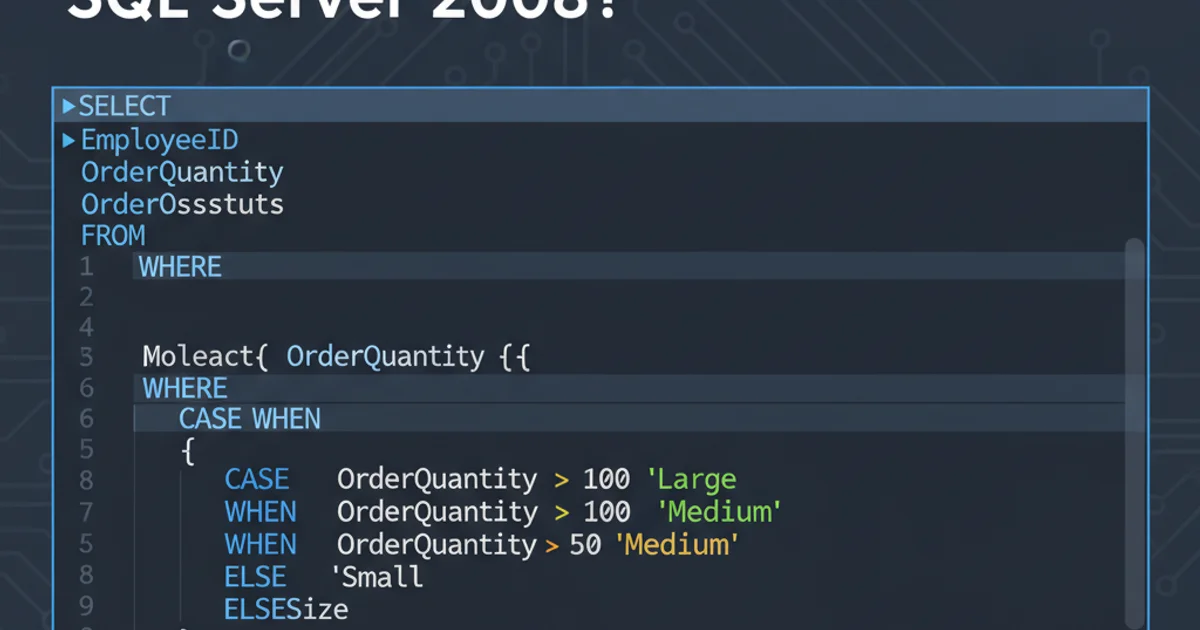Python get all permutations of numbers
Categories:
Generating All Permutations of Numbers in Python

Explore various Python methods to efficiently generate all possible permutations of a given set of numbers, from basic loops to advanced library functions.
Permutations are fundamental in many areas of computer science and mathematics, including cryptography, algorithm design, and combinatorial optimization. In simple terms, a permutation of a set of items is an arrangement of those items into a particular order. For example, the permutations of the set {1, 2, 3} are {1, 2, 3}, {1, 3, 2}, {2, 1, 3}, {2, 3, 1}, {3, 1, 2}, and {3, 2, 1}. This article will guide you through different Pythonic ways to generate all permutations of a sequence of numbers.
Understanding Permutations
Before diving into the code, it's crucial to understand what permutations entail. If you have n distinct items, the number of possible permutations is n! (n factorial). For instance, with 3 items, there are 3! = 3 * 2 * 1 = 6 permutations. As the number of items increases, the number of permutations grows very rapidly, which is an important consideration for performance.
flowchart TD
A[Start with a set of numbers] --> B{Choose an element}
B --> C{Place it in the first position}
C --> D{Recursively permute remaining elements}
D --> E{All elements placed?}
E -- Yes --> F[Add permutation to result]
E -- No --> B
F --> G[Backtrack and try next element]
G --> BConceptual flow for generating permutations recursively.
Method 1: Using itertools.permutations
Python's itertools module is a powerhouse for efficient looping. The permutations() function from this module is the most straightforward and Pythonic way to generate all permutations of an iterable. It returns an iterator that yields tuples, where each tuple is a permutation. This method is highly optimized and recommended for most use cases.
import itertools
numbers = [1, 2, 3]
# Generate all permutations
all_permutations = list(itertools.permutations(numbers))
print(f"Original numbers: {numbers}")
print(f"All permutations: {all_permutations}")
# You can also specify the length of the permutations (r)
# For example, permutations of length 2
permutations_len_2 = list(itertools.permutations(numbers, 2))
print(f"Permutations of length 2: {permutations_len_2}")
itertools.permutations function returns an iterator. If you need to store all permutations in memory, convert it to a list using list(). Be mindful of memory usage for large input sets due to the factorial growth of permutations.Method 2: Implementing a Recursive Algorithm
For educational purposes or scenarios where itertools might not be available (though rare in standard Python environments), implementing a recursive permutation algorithm is a valuable exercise. A common approach involves fixing one element and then recursively finding permutations of the remaining elements.
def get_permutations_recursive(arr):
result = []
if len(arr) == 0:
return [[]]
if len(arr) == 1:
return [arr]
for i in range(len(arr)):
# Pick one element
m = arr[i]
# Get remaining elements
rem_arr = arr[:i] + arr[i+1:]
# Recursively get permutations of remaining elements
for p in get_permutations_recursive(rem_arr):
result.append([m] + p)
return result
numbers = [1, 2, 3]
all_permutations_recursive = get_permutations_recursive(numbers)
print(f"Recursive permutations: {all_permutations_recursive}")
itertools.permutations for production code.